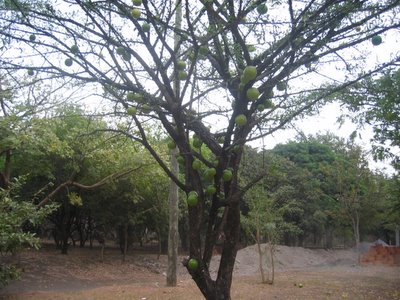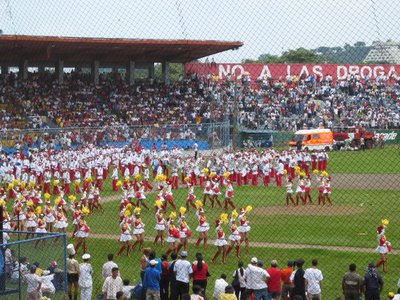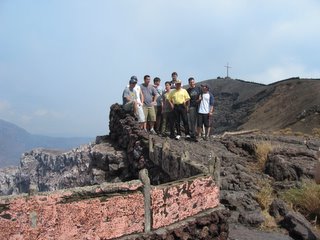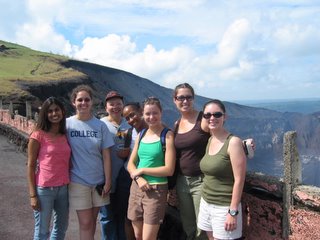The Latrine. La letrina.
Sometimes I complain so much about life in Nicaragua, not remembering how hard other volunteers have it. We are part of the Small Business Program sector, therefore we are assigned to bigger towns and cities. Volunteers who belong to the Agriculture, Health or Environment are placed in very remote areas with no water, tv or electric services. We learned of a volunteer that the house where he was living in had the bathroom outside, which consisted only of a latrine, four wooden posts on each corner with a black plastic bag around it serving as walls. But, since Nicaraguans are quite short when they sit on the latrine, they are covered, but the volunteer was tall and when he sat, his head would stick out and everybody passing by saying hellos and how are you today. He was very embarrased, so he decided to throw a hankerchief over his head so HE could not see anybody. I just imagine what his neighbors were saying behind his back.
ESPANOL
A veces me quejo tanto de la vida aqui en Nicaragua y se me olvida que hay otros voluntarios que sufren aun mas que nosotros. Somos parte de el sector de Pequenos Negocios o La Empresa Creativa asi que nos envian a los pueblos y ciudades mas grandes. Los voluntarios que pertenecen a los sectores de Agricultura, Salud y Medio Ambiente son enviados a areas muy remotas donde no hay agua, tv o electricidad. Supimos de un voluntario que la casa donde el vivia tenia el bano afuera que consistia en una letrina con cuatro palos en cada esquina y un plastico alrededor haciendo de paredes. Los nicaraguenses son bajitos en general asi que cuando se sientan en la letrina, estan cubiertos. Pero el voluntario era alto y cuando se sentaba en la letrina su cabeza sobresalia y todo el mundo que pasaba por ahi diciendole Hola y como estas. El le daba mucha verguenza todo esto asi que decidio ponerse un panuelo sobre la cabeza para asi EL no poder ver a nadie. Solo me imagino lo que sus vecinos estarian hablando de el.





















